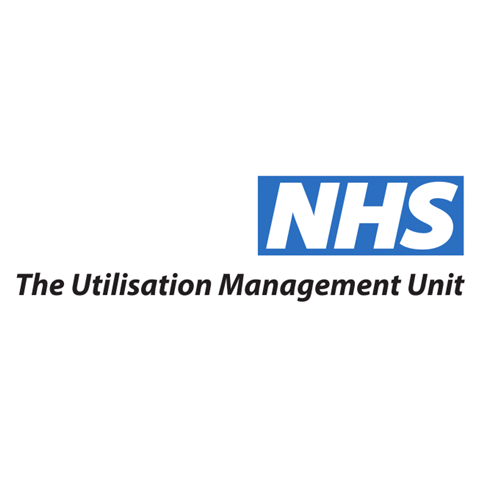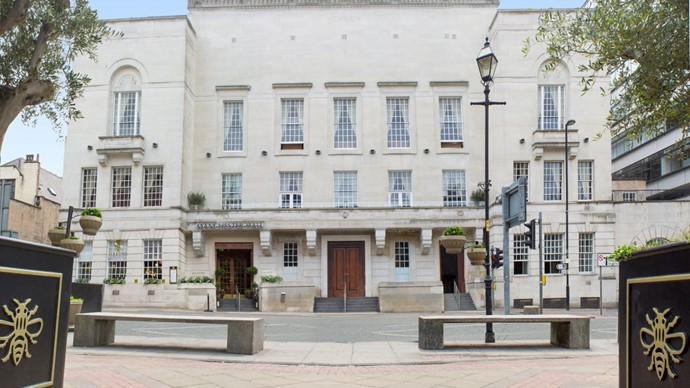Managing Accident and Emergency: Averting an NHS Crisis
- 26 February 2014
- 08:30 - 16:00
- Contact us for venue

Although there have been some successful initiatives to improve how the NHS delivers urgent and emergency care to relieve struggling acute hospital services, more remains to be done. Achieving patient flow is essential for patient experience, clinical safety and reducing the pressure on staff, however, good flow continues to be elusive throughout the patient’s journey.
The NHS long term plan has revealed key ambitions that will look to reduce some of the pressures within hospital settings and help provide timely and appropriate care, in the right settings, which will maintain flow, promote successful outcomes and deliver efficiencies.The 6th Annual Urgent and Emergency Care: Facilitating Patient Flow conference will examine in depth the aims of the long-term plan and how they will impact on urgent and emergency care delivery. Key areas of focus include:
The agenda will provide delegates with a greater understanding of how the long-term plan will shape the future of urgent and emergency care provision and discuss the opportunities and the challenges in providing a sustainable service that is reactive to demand.
In recent years there has been significant measures taken to alleviate some of the pressures within the urgent and emergency care service. The availability of evening and weekend GP appointments, greater access to the NHS 111 service and reductions in delayed transfer of care (DToC) are just some examples of initiatives assisting with providing the right treatments, at the right time, in the right place. If more of this can be achieved, then patient flow can be improved, and better outcomes can be realised.
The acute hospital system can easily become congested by the sheer numbers of those attending the emergency department through to the delays experienced in sending those that medically fit for discharge home.
The NHS Long Term Plan has set out its aims to improve the delivery of emergency and urgent care and release the pressure the system is currently working under. There is to be a boost in primary and community healthcare, with funding worth £3.5 million per year, in real terms, by 2023/24. The hope is that this will provide more urgent care and greater support in the community, as an alternative to hospital.
As part of the NHS 111 provision, multi-disciplinary Clinical Assessment Service (CAS) will be rolled out during 2019/20. The aim is to offer specialist advice, treatment and referral from a wide range of health professionals. Also, by 2020, The Urgent Treatment Model will be fully implemented. These GP led facilities will offer locally accessible and convenient urgent care for patients that do not need to attend hospital. New 24/7 Rapid Response Teams are to be established and will comprise of doctors, nurses, physiotherapists etc. to prevent admission to hospital and aid timely discharge and recovery.
Also, during 2019/20, all major A and E Departments will introduce Same Day Emergency Care (SDEC), also known as ambulatory emergency care. This will involve new diagnostic and treatment practices and allow patients to spend just hours in hospital and avoid being admitted. This will benefit the patient flow by freeing up beds and reduce pressure throughout the rest of the hospital.
The plan also looks to develop new ways of working to improve patient pathways following strokes, heart attacks, major trauma, asthma attacks and sepsis.
Efforts will be made to reduce the number of patients that remain in hospital, despite being medically fit for discharge. These delayed transfers of care snarls up patient flow and increases risk to patients from both physical and cognitive deterioration.
At the Urgent and Emergency Care: Facilitating Patient Flow conference, the plans for urgent and emergency care will be discussed, digested and debated to provide an informed vision for the future.
The Getting It Right First Time (GIRFT) programme for Emergency Medicine is about identifying and eliminating unwarranted variation in Emergency Care. The extent of that variation and its effect on patients is the subject of this talk.
Consider the development of locality system leadership teams and how improvement and change capability can be built across the integrated workforce
Hear about practical improvements in whole system flow across North West England and how large-scale change in emergency and urgent care can be designed and co-ordinated
We live in an ‘information age’ with more available data than we have ever had before. More data means we have to be more mindful of what the evidence is actually worth. The main failure in delivering good data driven decision making is not a lack of data but flawed thinking. Hear about our expert insight into the cognitive bias and illusions we as humans are prone to and need to be aware of when analysing and receiving data.
Marc Farr, Chief Analytical Officer at East Kent Hospitals University, and Dr Juan Antonio Hueto, Chief of Surgery at Vall d’Hebron Hospital in Barcelona, will be presenting a new approach to surgical process optimization developed by MYSPHERA, the leading IoT platform for healthcare organizations in Europe.
Based on real time location technology, this solution provides reliable data used to optimize healthcare processes, assign and manage tasks automatically, and inform patient relatives about the status of their loved ones. MYSPHERA’s technology has proven to increase surgical performance by 10% in hospitals in Spain, such us Vall d’Hebron or Valencia General.
Community Rapid Response services offer an alternative to hospital admission for patients who are having an acute episode of ill-health and with appropriate and timely health assessment could stay at home. In Mid Cheshire each patient contact made by the team avoids a GP visit and it is estimated that 72 per cent of patients that have been seen have avoided a hospital admission.
Since January 2019, Hampshire Hospitals NHS Foundation Trust has been running a transformation programme to deliver improvements to patient flow and quality. James Kerr provides his view on how this programme has not only allowed the trust to buck the trend in urgent care performance, but also kick-start a ground-up culture change.
McCartney Health Associates are working with Federations and Primary Care Networks who have a vested interest in the success of locally developed Urgent Treatment Centres. As with the introduction of any new service, integration with existing services can prove challenging. This presentation explores the challenges faced and the true relationship that a UTC has with primary, secondary and community care.
Explanation of the challenges of implementing the Lincolnshire Clinical Assessment Service from 2016, current service state and future plans as part of Lincolnshire’s Integrated Urgent Care service delivery model.
Urgent and Emergency care is under immense pressure but there are opportunities for technology to help. Queen Mary’s Sidcup has implemented eTriage over the last 18 months to reduce time to initial assessment, time to treatment and eradicate patient queues at reception. Digital triage and check-in in under 4 minutes is allowing patients to be seen in 15.
A new mobile application will help support ambulance staff to ensure suspected stroke patients are taken to the best site as quickly as possible after being developed following Health Innovation Manchester’s “Mobilise the NHS” Scheme.
The app, which has already been tested by North West Ambulance Service (NWAS), presents clinicians with a clear flowchart of buttons to follow to ensure patients suffering from a suspected stroke are taken for specialist care and rapid treatment at a Hyper Acute Stroke Units (HASUs)
In 2018, around a quarter of a million hospital bed days in England were taken up by people who were medically fit enough to be discharged, but who faced delays in an appropriate care home being found that could meet their recovery needs. A new digital portal has been introduced by the NHS and councils which allows health and social care staff to see how many vacancies there are in local care homes, saving hours of time phoning around to check availability and helping people to get the right care or return home as quickly as possible

Manchester Hall is the first boutique Manchester conference venue for business meetings. We provide a personal service to ensure that every aspect of your meeting fits your requirements perfectly. We also have all of the technical equipment that you may require and all of our suites have AV facilities. We will make every effort to accommodate other specific requests too. From the Goulburn Lodge Room with its wealth of original Freemasons’ features to the more intimate Study thats size and shape is ideal for smaller business meetings, we offer rooms for every type of meeting.
The Grade II listed building lies at the gateway to Spinningfields, the city’s thriving business and professional quarter, making it the ideal location for a Manchester conference venue and your business needs. We are easily accessible from Manchester Piccadilly or Manchester Victoria stations. Alternatively, you can get a tram to nearby Deansgate Castlefield tram station. With our city centre location, we are also a great location for delegates travelling to Manchester via the airport, with excellent public transport and taxi links.